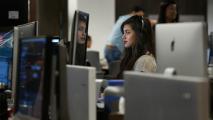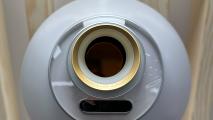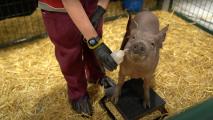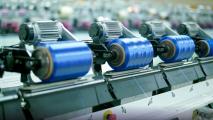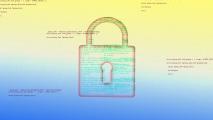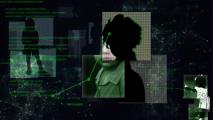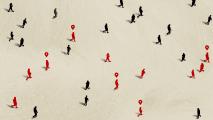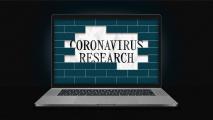
The Digital Frontier
30 years ago, the Internet opened up a new frontier, and today we’re all citizens of a digital Wild West, where how we live, work and govern is changing everyday.
More
These futuristic sensors will allow cars to see through fog
Quantum sensors will transform self-driving cars, medical imaging, and more.
Scientists create modem for future quantum internet
Physicists have created a modem for the quantum internet of the future, giving powerful quantum computers a way to share information.
Keeping democracy safe in the 2020 election
Here’s how election officials and volunteers across the country are working around the clock to ensure a free, fair, and safe Election Day.
Underwater data center could lead to a more reliable internet
After spending two years on the ocean’s floor, Microsoft’s underwater data center had a much lower server failure rate than land-based data centers.
Google announces cheaper alternatives to college degrees
Google’s new certificate program provides alternatives to college degrees that are cheaper to obtain, but potentially worth the same in the job market.
Elon Musk: Neuralink brain implant detects pigs' movements
During a livestream, CEO Elon Musk presented the latest Neuralink brain implant, as well as what he claimed were several pig recipients of the device.
How to radically biohack your mind
Brain-computer interfaces could enable humans to “merge with AI.”
Fecal transplant cures man whose gut made him drunk
A fecal transplant cured a man of auto-brewery syndrome, a rare condition in which the gut converts carbs into alcohol, making a person feel drunk.
Is it possible to predict the next black swan event?
Extremely rare but massively disruptive, no one sees a black swan event coming. But researchers are building a method that may change that.
An invite to hack voting machines
Voting machines may have security vulnerabilities, so the largest supplier is inviting pro hackers to find them.
Hack your dreams to improve your waking life
These scientists want to hack your dreams to improve your creativity and memory.
How thread became critical in a pandemic
Tech giants have teamed up to help innovate the PPE supply chain and lessen the risk of future shortages, starting with the world’s leading thread supplier.
Is quantum hacking the biggest threat to encryption?
While some security experts prepare for quantum hacking, others argue that the EARN IT Act is the threat to encryption we need to address right now.
New tech startup aims to teach more girls to code
This start-up just launched an at-home coding kit that aims to get more girls into tech.
White hat hackers are defending hospitals from rising cyber attacks
Criminals are exploiting COVID-19 to launch cyber attacks. These volunteers have grouped together to fight back.
Series|
Biohackers
DIY biohacking: Do(n’t) try this at home
Dr. Josiah Zayner believes scientists are dragging their feet on realizing CRISPR’s potential, so his do-it-yourself CRISPR kit allows people to experiment with gene editing at home.
Fighting child exploitation with big data
Last year, the National Center for Missing and Exploited Children received 18 million reports of images and videos depicting child sexual abuse. Now, they’re using a new technology to confront this issue with the force necessary to eradicate it.
Face masks made from… LEGO?
The popular toy company that’s mass-producing PPE, how to fight the coronavirus from your computer, and more top stories in our weekly Progress Report.
Disease detectives: tracking invisible killers
Disease detectives on the frontlines of coronavirus track the person-to-person spread.
Hackers leak thousands of coronavirus research papers
Potentially life-saving medical research is often hidden behind expensive paywalls, limiting access for those in the developing world. So one modern-day Robin Hood illegally downloaded and shared over 5,000 coronavirus research papers on Reddit.
Get inspired with the most innovative stories shaping the world around us.
